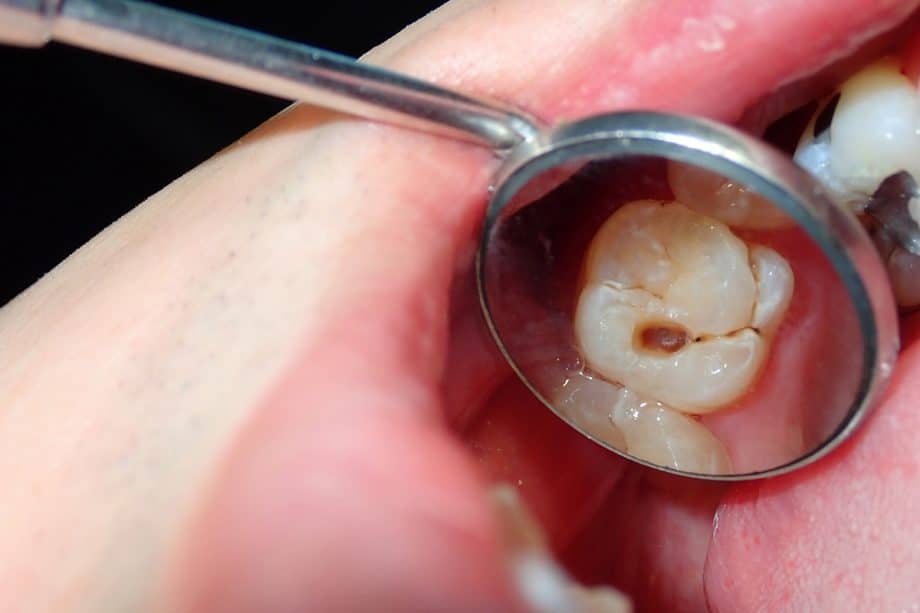It’s not uncommon for your tooth to feel a little off after receiving a filling. After all, this restoration process involves removing decay, reshaping the tooth, and sealing it up to prevent further damage. But what happens when the discomfort lingers longer than expected? Should you be concerned?
Here, we’ll discuss what’s normal and what’s not when it comes to post-filling pain, what might be causing prolonged sensitivity, and when it’s time to call your dentist. If you’ve just had a filling or are planning to get one, this article is for you.
Why Does a Tooth Feel Sensitive After a Filling?
A little sensitivity after a filling is normal and often expected. This sensitivity typically occurs because the tooth’s nerve becomes irritated during the filling process. Whether it’s temperature sensitivity (reacting to hot or cold food and drinks) or mild discomfort when chewing, these sensations can be part of your tooth’s natural adjustment period.
Fortunately, this temporary sensitivity usually subsides within two to four weeks. During this time, it’s important to continue monitoring your symptoms and take note of any changes. However, if the sensitivity seems to remain constant or worsen after this adjustment period, it may point to an underlying issue.
What Causes Prolonged Sensitivity After a Filling?
Although most individuals recover quickly after a filling, some might experience lingering sensitivity or pain. Here are a few possible causes:
- High Filling: If the filling isn’t perfectly shaped to fit your bite, it can cause unnecessary pressure or discomfort when chewing. This issue can be easily resolved with a quick visit to your dentist, who can adjust the filling’s shape.
- Nerve Irritation: Occasionally, the procedure might cause inflammation in the tooth’s nerves, leading to sensitivity that lasts for some time.
- Cracks or Damage: The filled tooth may develop cracks or the filling itself might weaken, exposing sensitive areas of the tooth.
These scenarios highlight the importance of addressing unresolved sensitivity with your dentist promptly, as untreated problems could lead to more complex dental issues.
Steps You Can Take to Alleviate Sensitivity
If you’re dealing with minor discomfort after a filling, there are simple remedies to help ease your symptoms. These include:
- Switching to a toothpaste formulated for sensitive teeth
- Brushing gently with a soft-bristled toothbrush
- Avoiding extremely hot, cold, or sticky foods for a few days after your filling
- Rinsing with warm salt water to soothe irritated areas
Additionally, keep in mind that consistently maintaining oral hygiene can also prevent future sensitivity and decay. Persistent or sharp pain, however, should never be ignored. It’s always better to err on the side of caution and contact your dentist for professional guidance.
When to Call Your Dentist
If your tooth continues to hurt or feels sensitive for more than four weeks, it’s time to schedule an appointment. Prolonged discomfort could signal an issue that requires further attention, such as infection, an improperly placed filling, or another underlying concern. Your dentist will carefully evaluate the problem and suggest the appropriate treatment to alleviate your symptoms.
At MD Smiles, we specialize in diagnosing and resolving dental concerns, including those related to fillings. Don’t let dental discomfort linger or interfere with your daily life—we’re here to help.
Frequently Asked Questions About Fillings
What should I do if my filling feels uneven when I bite down?
If your filling feels uneven or causes discomfort when chewing, it’s important to visit your dentist. An adjustment to the filling’s shape can often fix this problem and restore your normal bite function.
Can a filling cause an allergic reaction?
Yes, although rare, some individuals may be allergic to the materials used in dental fillings, such as metals or composite resins. If you experience symptoms of an allergic reaction, such as swelling or redness, notify your dentist immediately to discuss alternative solutions.
At MD Smiles, we pride ourselves on providing compassionate, top-quality dental care for our patients in Ellicott City and beyond. If you’re experiencing dental discomfort or would like to learn more about how we can support your oral health goals, please contact us. We’re here to help you maintain a healthy, happy smile.

